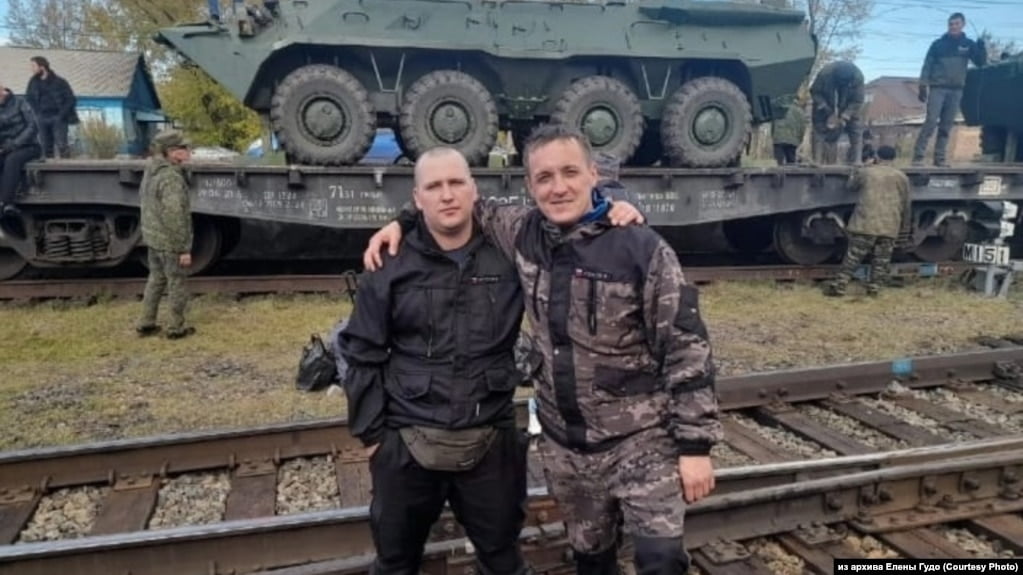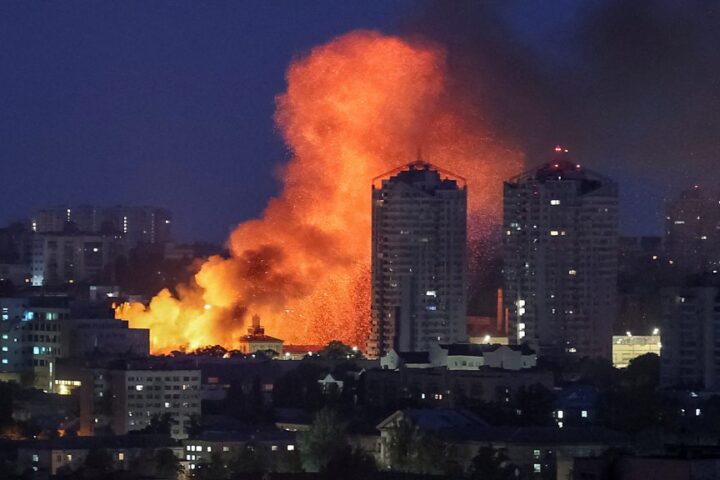Four days after Russian President Vladimir Putin announced the order to mobilize hundreds of thousands of men to fight in Ukraine, Aleksandr Koltun, a 35-year-old father of six, showed up at the local draft board office in the Siberian city of Bratsk and presented himself for service.
He, and a batch of other conscripts, were sent later that day to Novosibirsk for further preparations for deployment.
Nine days later, his relatives said, he was dead.
“My daughter-in-law…told me, she called me in tears in the middle of the night and said that Sasha had died,” Koltun’s mother, Yelena Gudo, said, using Aleksandr’s familiar, affectionate name.
Russia is continuing to ramp up its mobilization efforts, a massive campaign aimed at shoring up the faltering, seven-month war in Ukraine and, by extension, the credibility of the Kremlin. Tens, if not hundreds, of thousands of Russians are being called up under the process.
By all accounts, the process has been chaotic and haphazard.
Newly mobilized soldiers — known colloquially in Russian as mobiki — have reported being left without food and water while awaiting orders; videos have shown logistics officers telling new conscripts to buy their own equipment, or take first-aid supplies from their own home medicine cabinets — or even their wives’ personal sanitary supplies. Soldiers have taken to posting videos on Russian social networks complaining about the conditions and disorganization.
The process has also seen a small, but growing number of fatalities. At least 16 people have died, according to news reports and activists, since Putin made the announcement on September 21.
Many of the deaths have been reported as suicides. Others, like Koltun’s, are unexplained, and his relatives fear they will never find out how he died.
‘All Mothers Need To Think Before Sending Their Sons There’
Koltun and his wife Galina, his relatives told RFE/RL, were raising six children together in a one-room apartment that Galina has been given free-of-charge by the government due to her being an orphan.
Four of their children were from Galina’s first marriage; the youngest was a 16-month-old girl.
Koltun first worked as a security guard and later he and his mother pooled resources to invest in a shoe shop in Bratsk, an industrial city of 224,000 located on the banks of the Angara River
He had also served previously in the military — in the Airborne Forces — which made him a prime candidate to be mobilized under the Putin order, an order that prioritized men in the reserves or those simply with prior military service. He showed up at the local recruitment office on September 25, to present his papers.
“I didn’t want to let him go,” Gudo, Koltun’s mother, told RFE/RL. “I said: ‘Son, you have such a large family, with whom will they be? And he said that the sooner he leaves, the sooner he will return.
“All mothers need to think before sending their sons there,” she said.

Anastasia Pestova, who said she was a friend of the family, told RFE/RL that all Koltun’s relatives and friends were against Aleksandr’s decision to volunteer.
“You can’t say that he joined the army because of the money,” she told RFE/RL “They didn’t need it, they had a good, big car. Both mother and wife, of course, tried to dissuade him. They were afraid for him.”
Koltun called his relatives from Novosibirsk, where he and the other men from Bratsk had been sent for further preparations and training.
Gudo said her son brought 7,000 rubles (about $112) with him to Novosibirsk, but when he called on October 2, he no longer had any money. He said that at the staging grounds, unidentified people were selling “bad” vodka, that the conscripts were drinking heavily. She said Koltun told her he wasn’t.
“But what the hell is going on there?” she asked.
When he called “he said that it was a complete mess,” Gudo said. “He said ‘we walk and wander back and forth, everyone’s drunk, they didn’t give us any uniforms, there’s no food’.’”
“He said that he was only eating what he brought from home. How is this possible in the army?” Gudo said.

She said on October 3 that they were sent a photograph of Koltun from Novosibirsk, via WhatsApp, by a friend who had been mobilized with him. In the photograph, Koltun was seen sitting on concrete, huddled in pain, waiting for an ambulance.
“He had recently been diagnosed with a hernia, but he believed that it would not prevent him from serving. He didn’t care about such things. But I cannot believe that there was no medical commission during the mobilization! They were not even given basic medical exams,” she said.
Gudo said neither she nor her daughter-in-law — Koltun’s wife — heard any official notice or condolence or explanation from the draft board or military recruiters about the death.
Gudo said they were told by officials that her son’s body would be returned from Novosibirsk to Bratsk on October 10, and they were presented with a 180,000-ruble (US$2,900) bill for the cost of transporting it.
City officials have offered to compensate them for the transportation, she said.
“We still don’t have a death certificate. It looks like he had a heart attack, but he didn’t have any heart problems,” she said.
“How is this possible?” she said. “This is mobilization.”
‘He Couldn’t Walk On His Own’
The reports of deaths — accidental or otherwise — make up a tiny proportion of all the men who have been mobilized. Still, the cases have reverberated for families and helped to erode confidence in the system, and add to doubts about the goals of the Ukraine war.
Denis Kozlov, 44, was among the first group of men mobilized from the Argayshsky district, in the central region of Chelyabinsk, on September 27.
“We didn’t resist this plan, because Denis dreamed of being a military man since childhood. He graduated from the Chelyabinsk Tank School, served in Ulan-Ude for quite a bit,” his mother, Zoya, told RFE/RL.

















